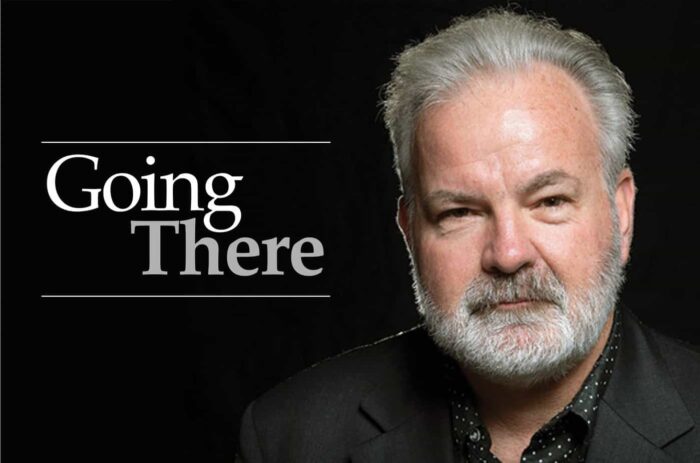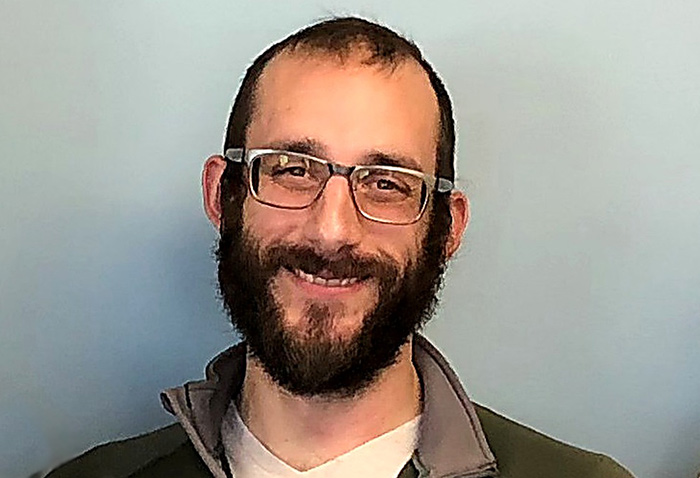‘We just want to live’: a border story

by Mick Rhodes | editor@claremont-courier.com
“Travel is fatal to prejudice, bigotry, and narrow-mindedness, and many of our people need it sorely on these accounts. Broad, wholesome, charitable views of men and things cannot be acquired by vegetating in one little corner of the earth all one’s lifetime.”
― Mark Twain, “The Innocents Abroad”
Those words were rattling around in my head as I made a hasty exit from Tijuana, Mexico on Monday after gunshots rang out near the migrant shelter from which I was reporting, causing panic among its already shell shocked residents.
It was an abrupt, if poignant ending to a day that shattered my preconceptions about the refugees trying to make their way to the United States at our San Ysidro border with Mexico.
That shelter — I was asked not to publish the address for fear of Mexican drug cartel retribution against some of the 235 asylum-seekers housed there, and their families back home — is aptly named: “Una Luz de Esperanza” (“a light of hope”). The ramshackle, three-level 3,900 square foot building includes several sleeping rooms, a courtyard, a small office, and a kitchen, and is without heat or air conditioning. Kids and mothers are the dominant population. And though quarters are unbelievably tight, everyone keeps their small personal areas tidy and efficient.
In the coming weeks the Courier will publish a series of stories about this shelter, the desperate and disparate asylum seekers there, the people who built and support it, those who mean it harm, and the policies that keep it at full capacity with no end in sight. We will also explore Claremont’s meaningful connection to Una Luz de Esperanza.
We will learn about two Mexican asylum-seekers who have suffered unimaginable losses.
Carlos Eduardo Gonzalez Salazar, 25, from Michoacán, described matter-of-factly how the recent killings of two of his family members who got caught up in Mexican drug cartel business led his cousins in Michoacán to seek to avenge the slayings. So, he and 14 other family members, mostly children, are simply hoping not to be murdered by seeking asylum in the U.S.
“It’s known that once somebody’s family is involved, basically they go after everyone, even the kids,” Carlos said. “They have no mercy with the kids; kids, adults, it’s all the same to them.”
Carlos assured me his story was not unique. “Mine is on the light side. The people out there,” he said, gesturing toward the courtyard where dozens of his fellow refugees were gathered, “they have the strongest cases. My family has one of the weakest cases.”
That became clear when I spoke to 37-year-old X, also from Michoacán, who asked that I not use her name or take her photograph out of fear for her life, and the lives of her family, who are also in Michoacán.
X was guarded at first, but as she began to talk her faint voice rose, her face betrayed her profound grief, and the tears came. In July 2022, X had recently been approached by a drug cartel for protection money. She refused. Later, gunmen entered her Mexico City hair salon and opened fire, killing her 16-year-old daughter. Her only child died in her arms.
After she refused to drop her legal case against the gunmen, the cartel came after her. She fled, leaving her home, her business, and the rest of her family at the time she needed them most.
As X and I were talking in a small, windowless office, gunshots rang out from the street below. Seconds later, the shelter’s courtyard was teeming with frantic mothers, some fathers, and more than 100 panicked, weeping children who had been in classes at the makeshift school next door.
One mother told a colleague the sound of gunfire and the immediate rush of parents looking for their children brought her back to the narco-violence from which they were all trying to escape. She said she was in desperate need of psychological help to deal with her ever-present horrific memories.
I’ll relate Una Luz de Esperanza Director Leticia Herrera Hernández’s remarkable story. Feeling lost and unmoored for several years following her son’s 2002 death, she turned to her Catholic faith, and in 2014 was compelled to begin feeding a small group of unhoused migrants who had gathered at a canal near the Tijuana/San Ysidro border. She opened Una Luz de Esperanza in 2016, and has since provided a safe waystation for more than 13,000 people she calls “my family,” most of them children.
We will also explore Claremont’s role in providing aid for Hernández and Una Luz de Esperanza. I first reported on this effort, spearheaded by Claremont City Council member Jed Leano and former Claremont City Development Director Dave Roger, in August, 2019 [“Community groups united to improve conditions at the border”]. Since then Leano and Roger have enlisted the help of a host of charitable Claremonters to raise money for improvements at the shelter. Thus far they have provided bunk beds and remodeled and expanded its kitchen, among other capital projects, with more to come.
The United States’ new “lottery” system does not take into account the level to which the lives of asylum-seekers are at risk when determining who is selected for an asylum interview. I will describe how that policy is cruelly random, and is exacerbating human suffering at the border.
Much of the coverage about the immigration crisis at our southern borders over the past decade has been couched in political rhetoric. I recall former President Trump, when announcing his candidacy in 2015, saying, “When Mexico sends its people, they’re not sending their best. They’re not sending you. They’re not sending you. They’re sending people that have lots of problems, and they’re bringing those problems with us. They’re bringing drugs. They’re bringing crime. They’re rapists. And some, I assume, are good people.”
The folks I met at Una Luz de Esperanza are the antithesis of this broadly false narrative. In the words of both Carlos and X, “We just want to live.”
Of course, what’s happening at the Mexico-US border is too massive and complex a problem to dissect in a 1,000-word column or a multi-part series. But after spending some time in Tijuana this week at the behest of Leano and Roger, I have come to the conclusion that the wholesale demonization of Mexican and Central American asylum-seekers is bull$h!t.









0 Comments